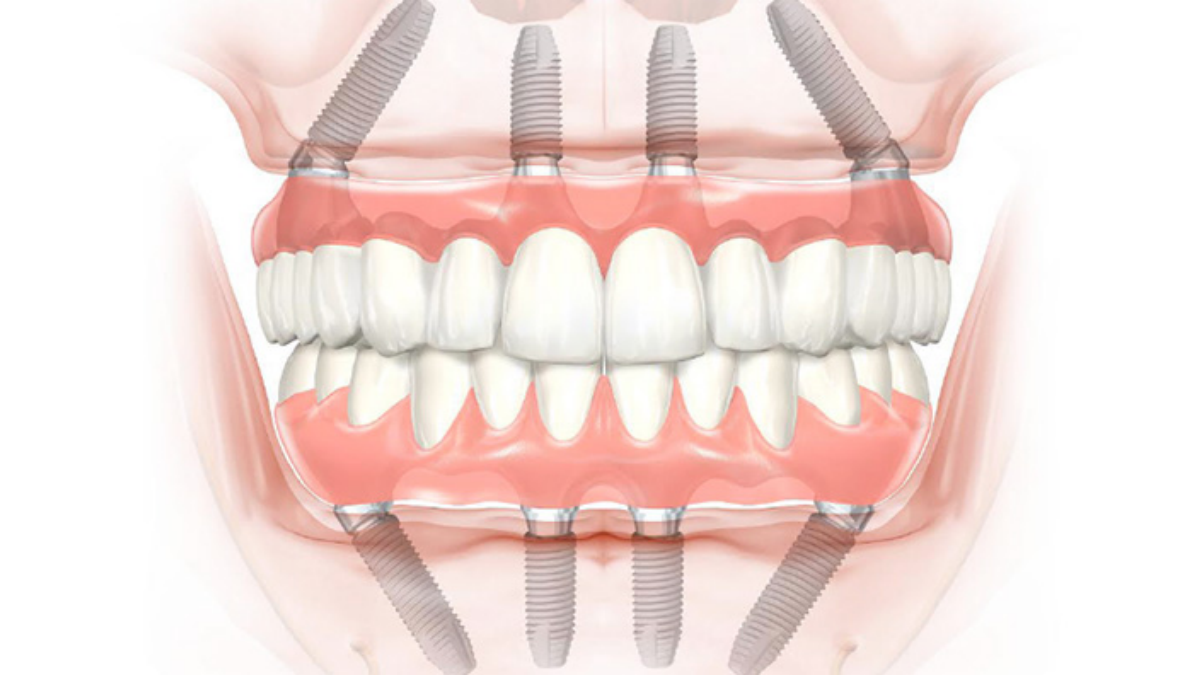The “All-on-4” dental technology is an innovative and advanced approach to restoring a full arch of teeth using dental implants. This technique is designed to provide individuals with a permanent and stable solution for tooth replacement, particularly for those who have lost a significant number of teeth or are facing complete tooth loss. The “All-on-4” concept involves placing four dental implants to support a complete set of prosthetic teeth in a single dental arch (either upper or lower).
“All-on-4” dental technology benefits:
Immediate Functionality: One of the key advantages of All-on-4 dental implants that a temporary or even permanent set of prosthetic teeth can often be attached to the implants immediately after surgery. This means that patients can leave the dental office with a functional set of teeth on the same day as the implant placement, avoiding the need to wear removable dentures during the healing period.
Aesthetics and Functionality: The prosthetic teeth attached to the implants are carefully designed to resemble natural teeth in appearance and function. They are customized to match the patient’s desired size, shape, and color, resulting in a natural and attractive smile.
Improved Chewing and Speech: All-on-4 dental technology provides stable and strong support for the prosthetic teeth, allowing patients to chew a wide variety of foods with confidence. It can also improve speech and eliminate concerns about denture slippage that are common with traditional removable dentures.
Long-Term Solution: All-on-4 implants offer a durable and long-lasting solution for tooth replacement. With proper care and maintenance, they can provide functional and aesthetic benefits for many years.
How long does it take?
The duration of the All-on-4 dental implant procedure can vary depending on several factors, including the patient’s individual case, the complexity of the treatment, and the specific approach taken by the dentist.
How much does it cost?
The cost of the All-on-4 dental implant procedure can vary widely based on several factors, including the geographic location of the dental practice, the experience and expertise of the dental team, the specific materials used, the complexity of the case, and whether any additional treatments (such as extractions or bone grafts) are required. Additionally, factors such as the type of prosthetic teeth (temporary or permanent) and the need for follow-up appointments can also influence the overall cost. So, you can find out the estimated price only after consultation.

